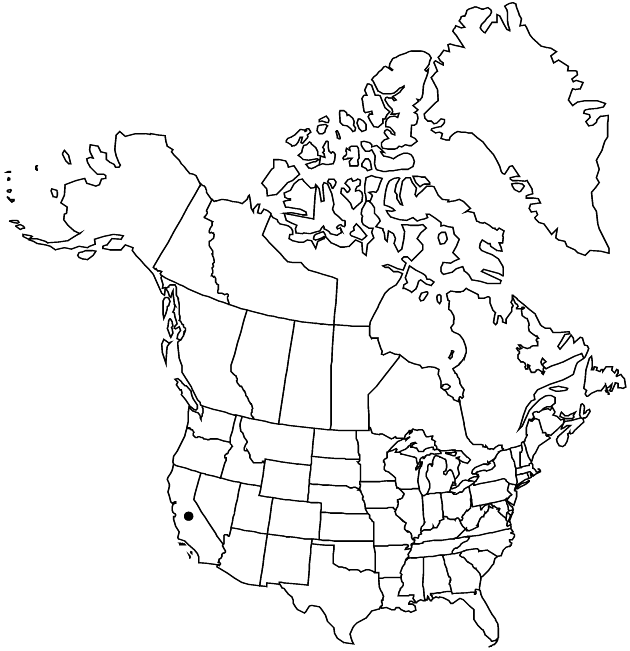Lasthenia leptalea
Univ. Calif. Publ. Bot. 40: 63. 1966.
Annuals, to 15 cm. Stems erect (peduncles sometimes sinuous), branched distally, glabrous proximally, villous distally. Leaves linear, 3–20 × 0.5–1 mm, (± fleshy) margins entire, faces sparsely hairy. Involucres obconic to campanulate, 4–6 mm. Phyllaries (± persistent) usually 4–6 (in 1 series), elliptic to ovate, glabrous but for hairy apices. Receptacles subulate, papillate, glabrous. Ray florets 6–9; corolla laminae broadly elliptic, 2.5–5 mm. Anther appendages subulate. Cypselae gray, narrowly clavate, to 2 mm, sparsely hairy; pappi usually of 1–4 translucent, white to yellowish, subulate, aristate scales (sometimes 0 in some florets within heads). 2n = 16.
Phenology: Flowering Feb–May.
Habitat: Open areas of oak woodlands
Elevation: 0–700 m
Discussion
Lasthenia leptalea grows in southern Monterey and northern San Luis Obispo counties. Originally assigned by R. Ornduff (1966b) to sect. Burrielia, L. leptalea is morphologically similar to L. gracilis, from which it can be distinguished by its subulate anther appendages and phyllaries that are hairy only at their tips.
Selected References
None.
